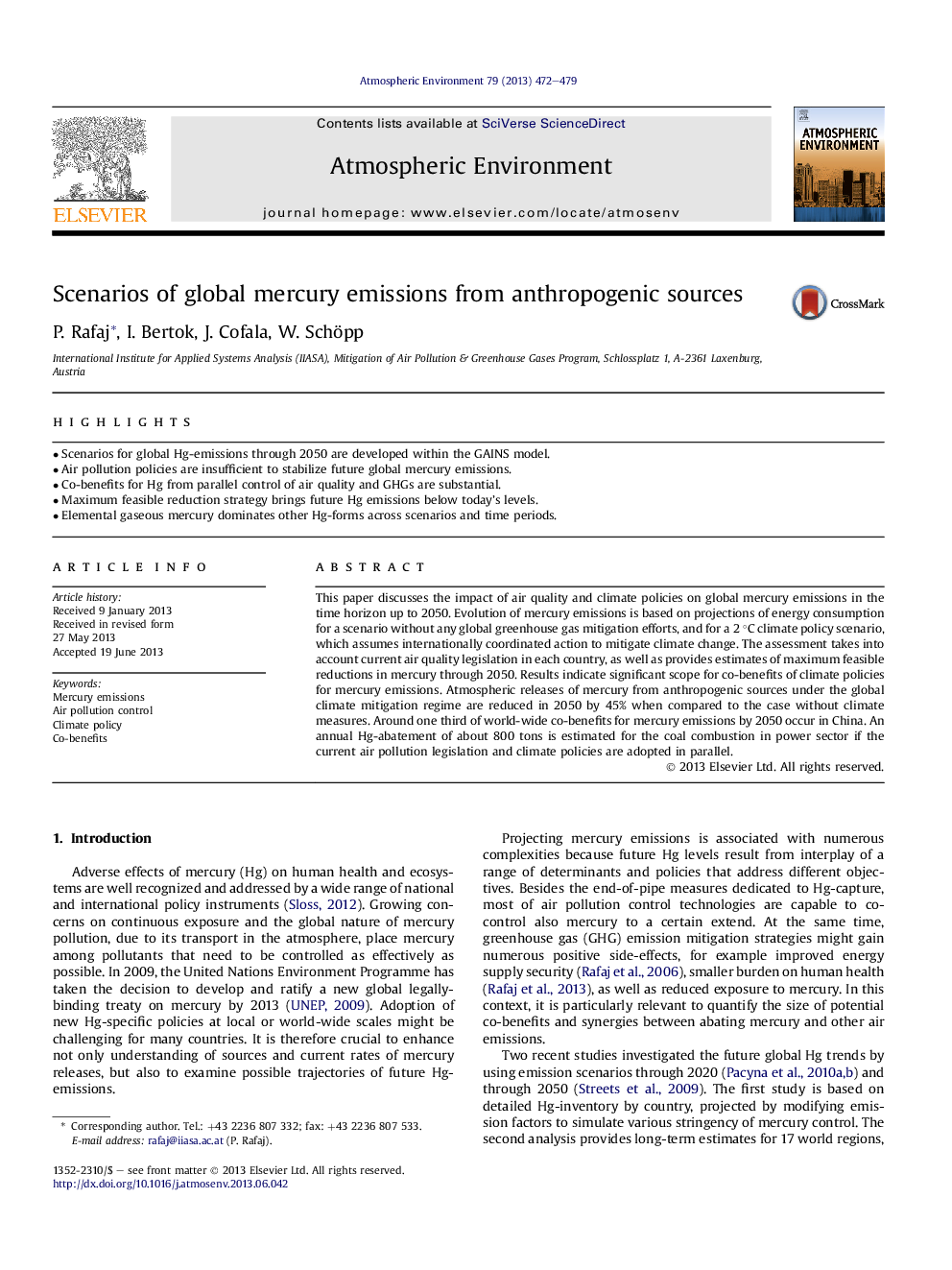| Article ID | Journal | Published Year | Pages | File Type |
|---|---|---|---|---|
| 6341505 | Atmospheric Environment | 2013 | 8 Pages |
Abstract
This paper discusses the impact of air quality and climate policies on global mercury emissions in the time horizon up to 2050. Evolution of mercury emissions is based on projections of energy consumption for a scenario without any global greenhouse gas mitigation efforts, and for a 2 °C climate policy scenario, which assumes internationally coordinated action to mitigate climate change. The assessment takes into account current air quality legislation in each country, as well as provides estimates of maximum feasible reductions in mercury through 2050. Results indicate significant scope for co-benefits of climate policies for mercury emissions. Atmospheric releases of mercury from anthropogenic sources under the global climate mitigation regime are reduced in 2050 by 45% when compared to the case without climate measures. Around one third of world-wide co-benefits for mercury emissions by 2050 occur in China. An annual Hg-abatement of about 800 tons is estimated for the coal combustion in power sector if the current air pollution legislation and climate policies are adopted in parallel.
Related Topics
Physical Sciences and Engineering
Earth and Planetary Sciences
Atmospheric Science
Authors
P. Rafaj, I. Bertok, J. Cofala, W. Schöpp,
